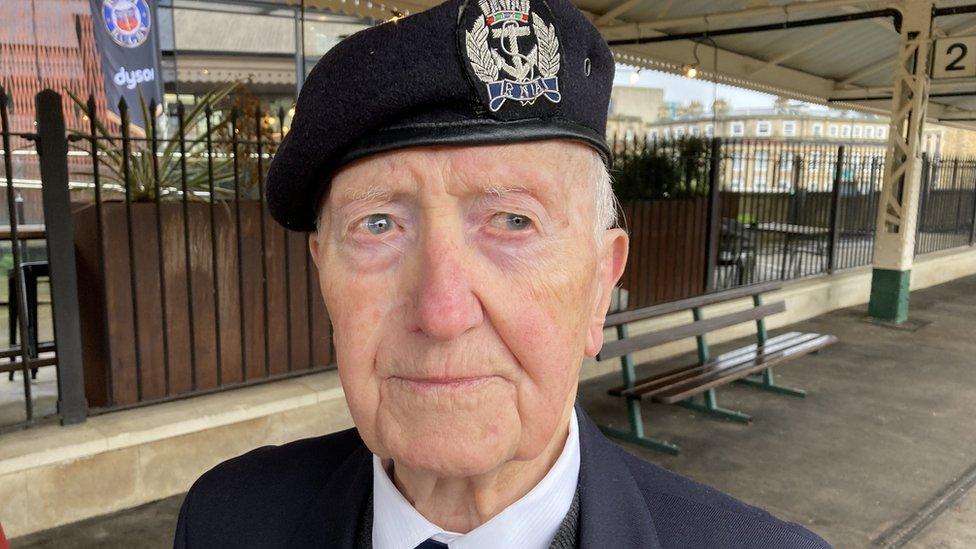Veteran describes anguish of Normandy landings
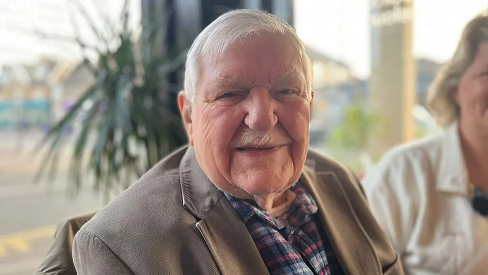
Arthur Oborne, 100, is travelling back to Normandy this week for the commemoration events
- Published
A veteran who took part in the Normandy landings has described the anguish of battle ahead of the 80th anniversary.
Centenarian Arthur Oborne, from Portishead, near Bristol, was shot through the lung three days after D-Day and will travel to France for commemoration events taking place on Thursday.
Mr Oborne, who was placed in reserve position in Arromanches-les-Bains, said his regiment was "apprehensive" about landing on the beaches.
"We took heavy casualties all round. I had a bullet through the lung - my body was black with bruises," he said.
Mr Oborne was wounded on 9 June 1944, three days after the first landings in Normandy.
"My friend got me, he was an old soldier. He put war dressings around me, which stopped the blood.
"Unfortunately, he was killed the next day," Mr Oborne recalled.
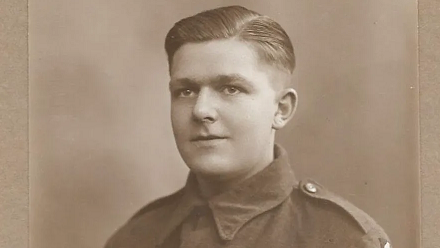
Mr Oborne was wounded shortly after the Normandy landings
After his severe injury Mr Oborne, who is the last surviving World War Two member of the Portishead Royal British Legion, was rushed to a field hospital.
He was then flown back to Swindon before being treated in Sand Bay, Weston-super-Mare "of all places" he joked, with his mother coming up from Bristol to be with him.
Parts of the bullet remain in his lung to this day, and the 100-year-old told the BBC he was shown pictures of the fragments during a check-up last year at Southmead Hospital.
"The fellow who was taking the pictures said 'would you like to have a look at these' and showed me X-rays," Mr Oborne said.
"He said 'what should we do, should we take it out or leave it?'
"I said 'leave it', so I carry that around as a memento."
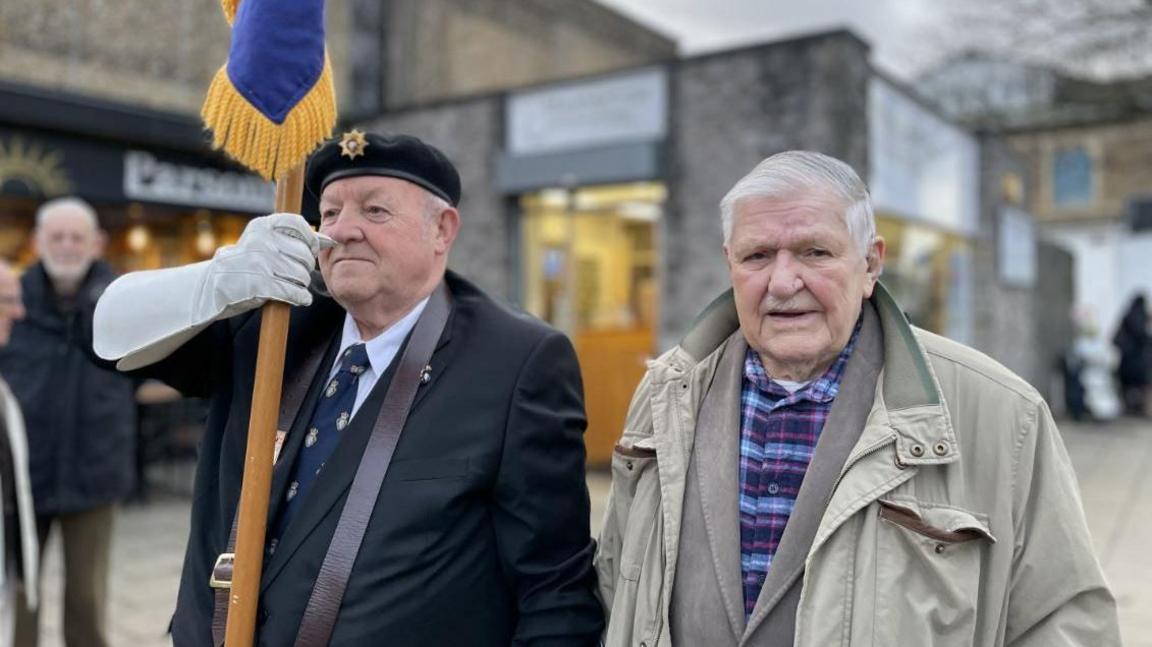
Mr Oborne is the last surviving World War Two member of the Portishead Royal British Legion
Reflecting on D-Day, he said he was still on the boat for the first wave of landings, and came off the day after.
"I was more afraid of being afraid then what actually happened," he said.
"You thought - can I stand it?"
After the war, Mr Oborne worked at prisoner of war camp in Bridgwater, filled with German and Italian soldiers.
He said: "I got on well with the Italians - singing songs, feeding me up."
Mr Oborne recalled that one of his favourite dishes, cooked by the Italians, was hedgehogs - baked in clay so they lost their spikes.
Along with his son, Mr Oborne will return to the D-Day beaches this week and he said whenever he travels back to Normandy he always visits the grave of his friend who saved his life.
Follow BBC Bristol on Facebook, external, X, external and Instagram, external. Send your story ideas to us on email or via WhatsApp on 0800 313 4630.
- Published24 January 2024
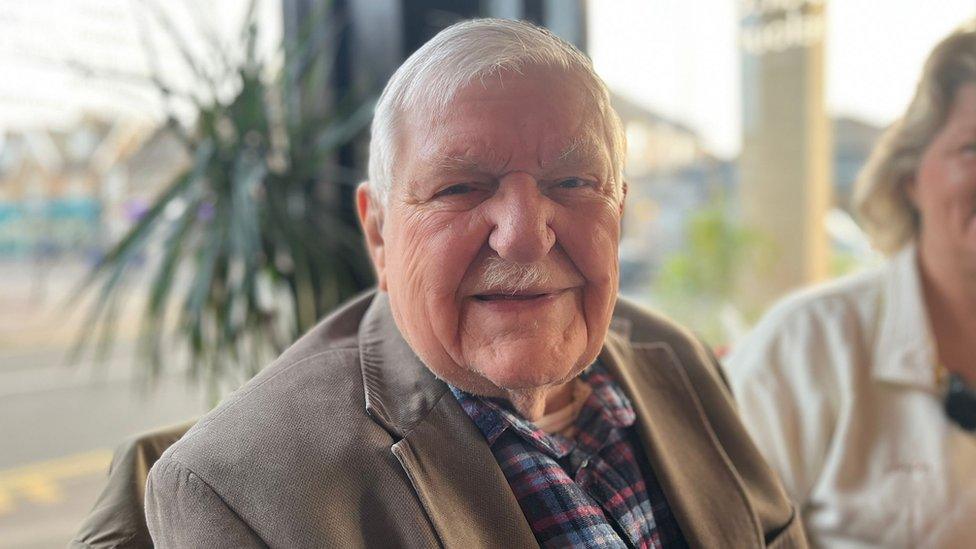
- Published30 May 2024
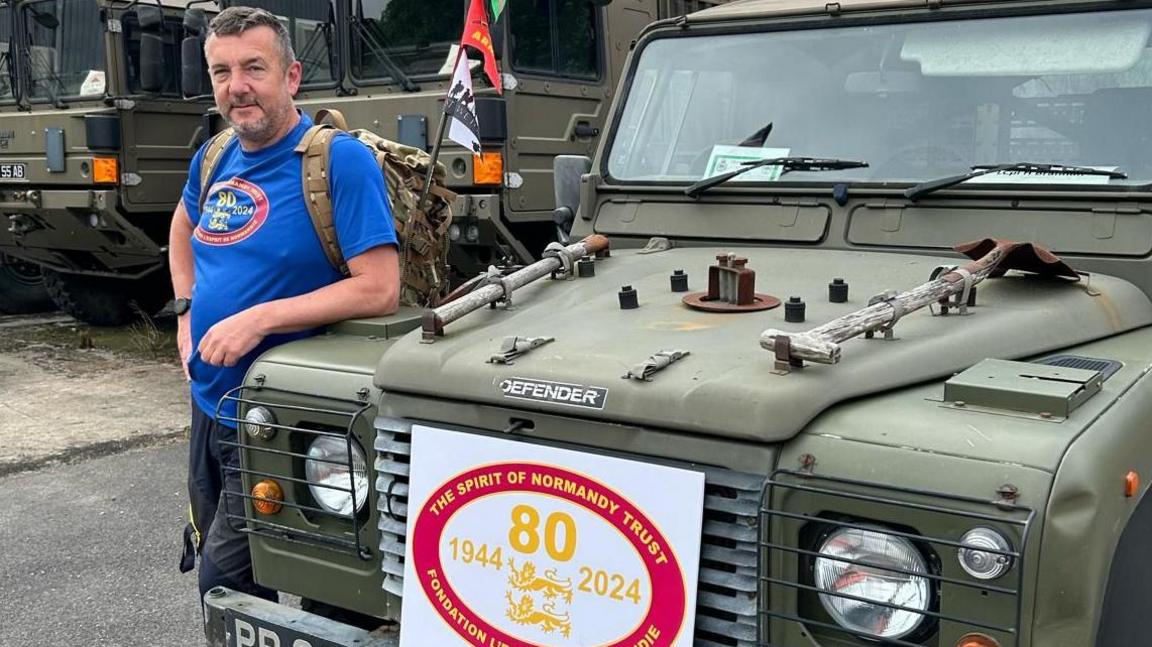
- Published10 November 2023
